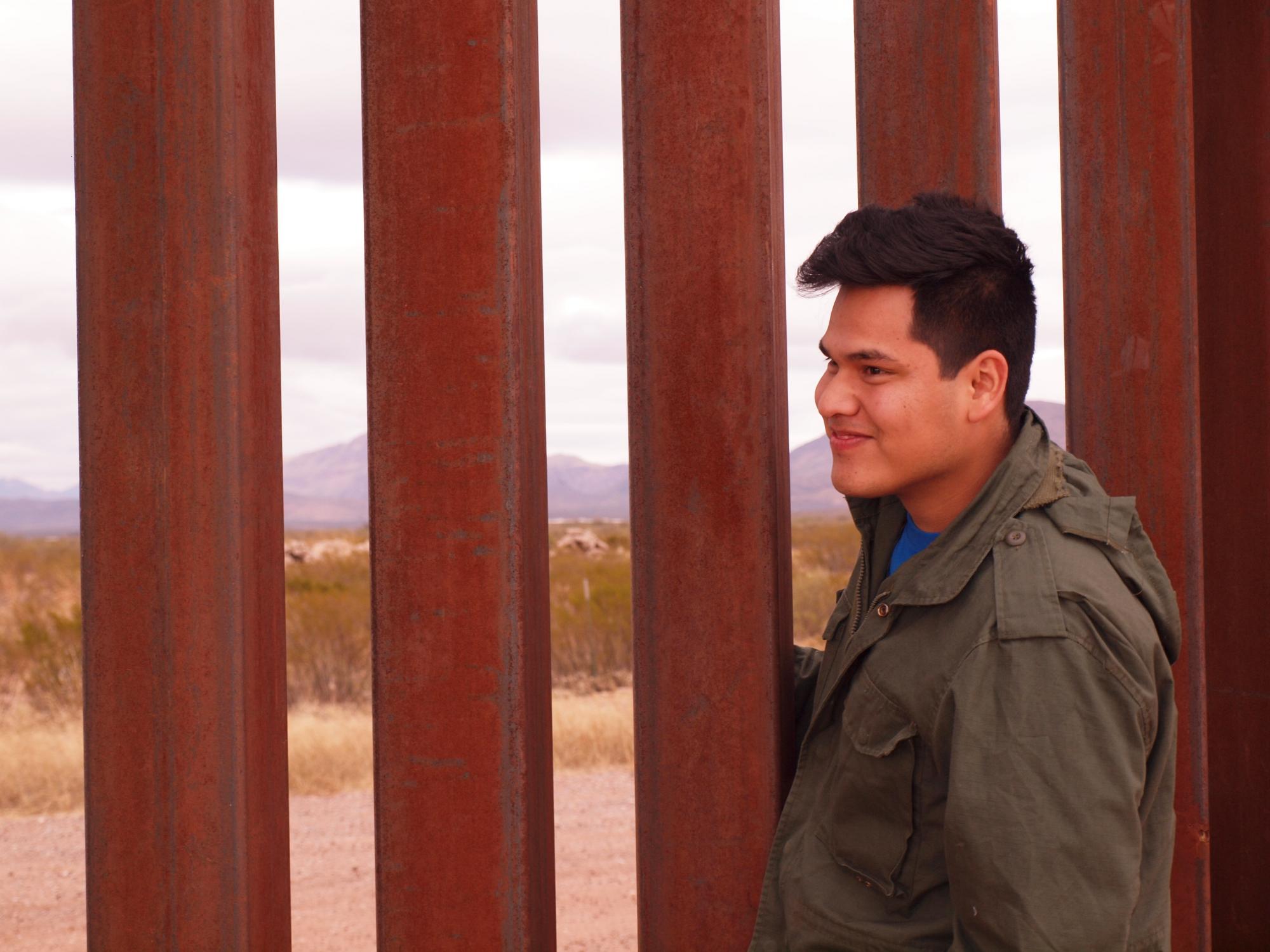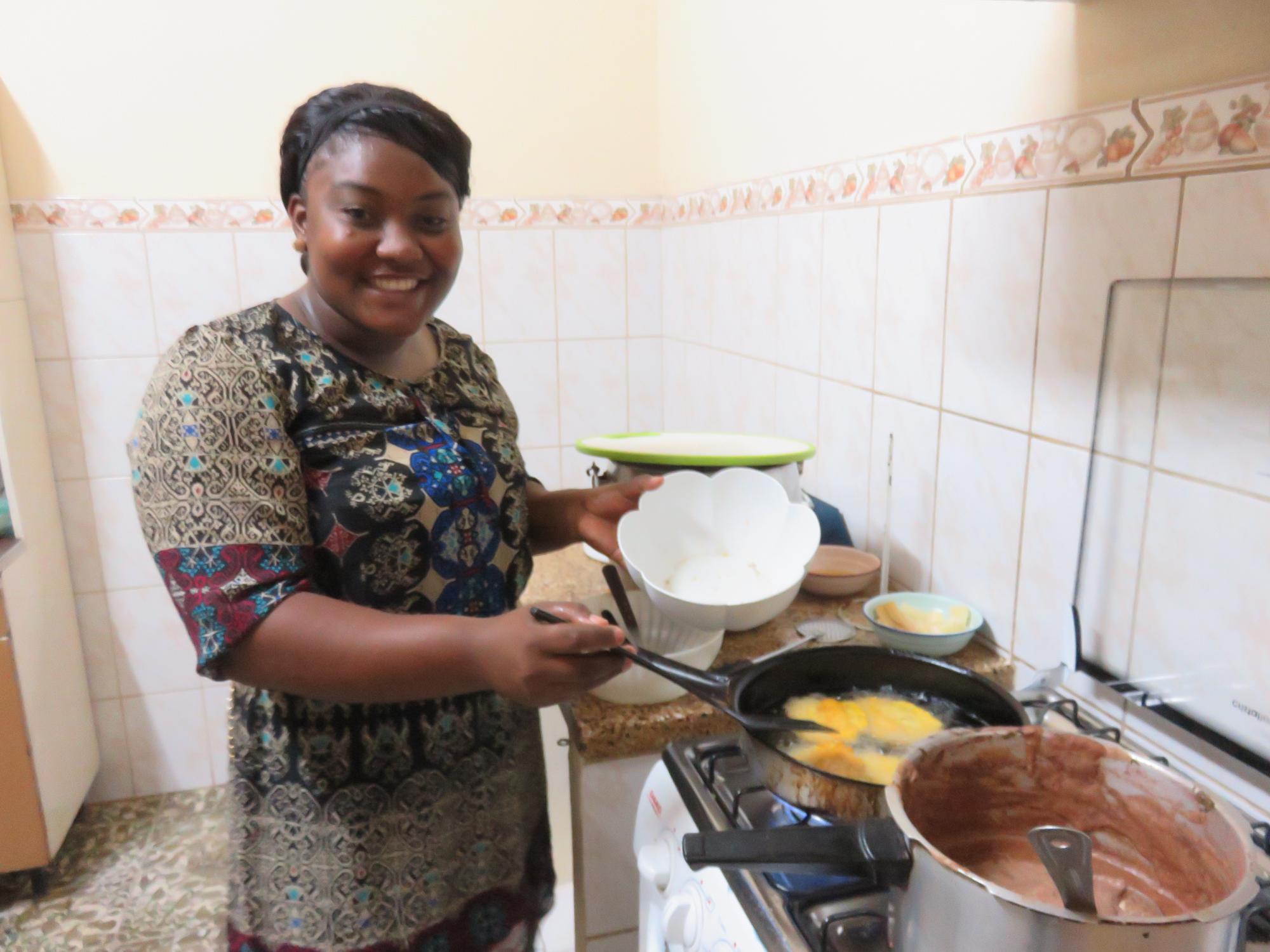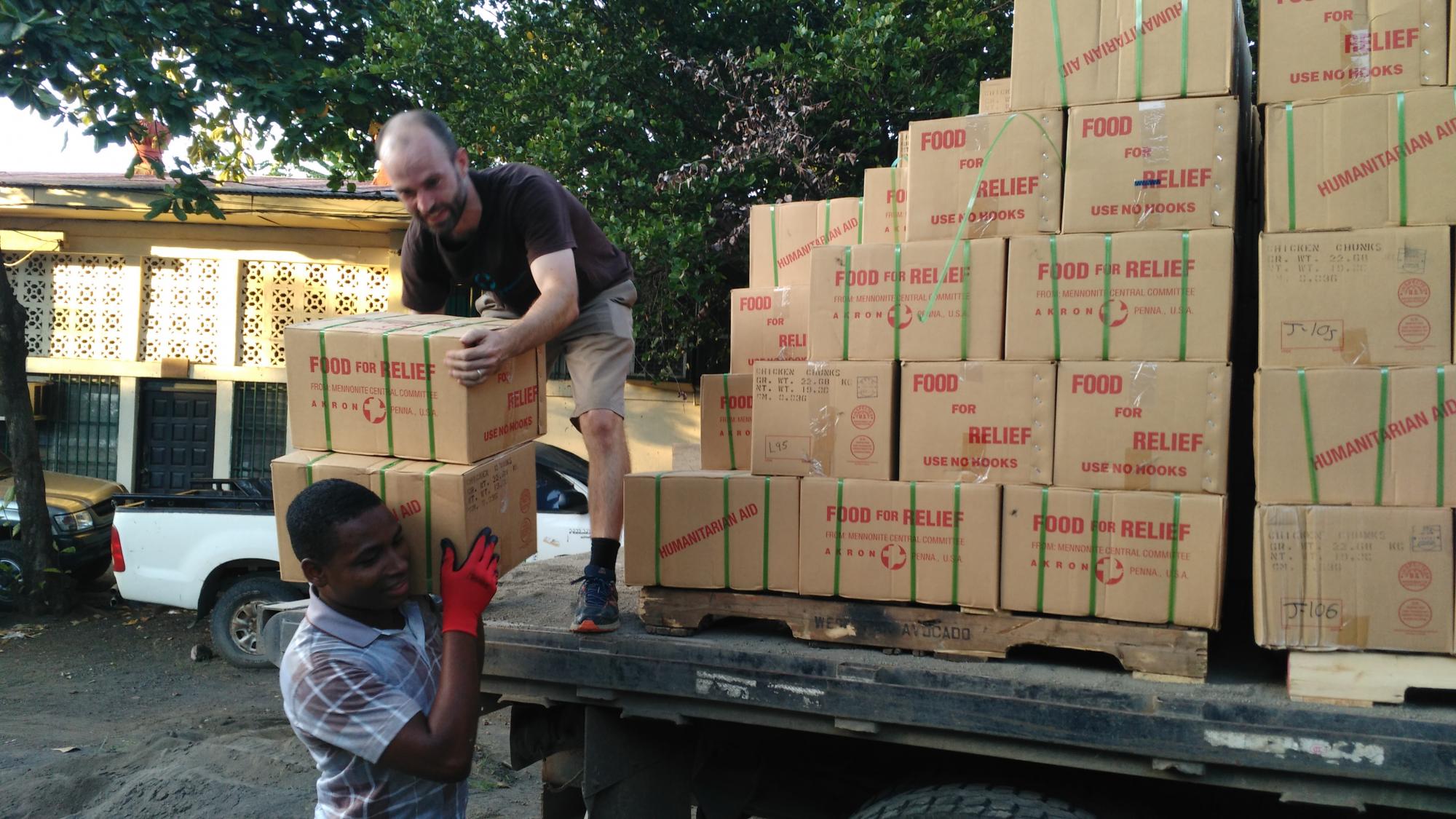Serving in an area of the world relatively close to your home country where the dominant language is the same as your own might seem relatively easy. But Young Anabaptist Mennonite Exchange Network (YAMEN) participants who hail from Latin American countries and are serving in other countries in the same region are seeing differences first-hand.
YAMEN is a joint program between MCC and Mennonite World Conference, a global community of faith in the Anabaptist tradition. An important part of the program is making connections between Anabaptist churches in different parts of the world.
YAMEN workers come from countries outside of Canada and the U.S. and do their service work outside of both of those countries.
Here are the stories of some of the Latin American YAMEN participants:

Juan Torrico Soliz – Bolivian serving in Mexico
Juan Torrico Soliz, 21, comes from Santa Cruz de la Sierra, Bolivia, and is serving in Mexico City as a hospitality assistant at Casa de los Amigos, where he also lives. Prior to moving to Mexico, Soliz studied Tourism and Hotel Management and worked at a daycare.
One of the biggest shocks for him was moving to a city with 21.2 million people. Greater Mexico City dwarfs his hometown which is home to just over one million people. It was also challenging for him to adjust to a more structured day.
“Lunch here [in Mexico City], depending on where you work, is one to two hours long, but in Bolivia everything would close down at lunch. Here, I’ll eat lunch between 3 and 4 in the afternoon, but at home, I’d eat around 12 or 12:30. The schedule during the day is so different, and it was really hard to get used to,” Soliz said.
Like the others, he had odd encounters in his mother tongue.
“In Mexico, a straw to drink out of a cup is popote, but in Bolivia it’s bombilla, In Mexico bombilla means lightbulb, so it just makes for some funny interactions,” Soliz said with a laugh.
He is one of the few YAMEN participants who isn’t living with a host family. Still, he says it’s important to seek out people locally to build relationships.
“Even though I’m not living with a host family, I think it’s important to find a balance between finding support in your host country and talking to family,” he said.

Juliana Arboleda Rivas – Colombian serving in Bolivia
Hailing from Quibdo, Chocó, Colombia, Juliana Arboleda Rivas is serving in Santa Cruz, Bolivia in Stansberry Children’s Home.
Rivas said pastors in her home community noticed the passion she has for service and encouraged her to do YAMEN.
“It’s been a very rich experience. I don’t have words to express the happiness that I feel. Happy happy happy happy,” she said with exuberance.
“I knew it was going to be different, but I was ready for anything. My name is Juliana, the brave woman ready for challenges.”
Rivas said she has learned key lessons along the way.
“I’ve learned about teamwork, the value of service and the love and dedication you give without expecting things to change,” Rivas said. “I’m happy to get to know people who enrich my life.”

Jhon Alex Martínez Lozano – Colombian serving in Nicaragua
Jhon Alex Martínez Lozano comes from the town of Basurú in Chocó, Colombia where he worked in a gold mine, volunteered with the Mennonite Brethren church in town, and studied radio journalism. Through YAMEN, he serves as a community assistant with an organization called Podcasts for Peace in Nicaragua’s capital Managua.
Lozano was concerned his Colombian ethnicity would be a barrier to integrating into the community.
“Before coming here I was worried about racism, that maybe there’d be discrimination because I’m Colombian and because Colombia has been vulnerable to drug addiction and trafficking,” he explained. “There have been a few times where people have talked to me or brought that up, but it hasn’t been bad.”
In fact, Lozano was warned about working at Podcasts for Peace because of the area’s reputation for crime.
“I don’t walk around with fear worrying about who is going to hurt me or rob me because I feel like I’m with family there,” he said.
“One day I was talking with a family in Acahualinca and I was telling them about it (the public perception of the area) and the family told me that they wouldn’t let anything happen to me, so that helped me feel a lot more secure and safe.”
Lozano said YAMEN allowed him to explore his faith further and in different ways, and taught him to interact with people he’s never related to before.
“My time here in Nicaragua has been a time for God. I’ve learned a lot and I’m going to keep learning,” Lozano said. To learn more about YAMEN, visit mwc-cmm.org/yamen.
Article by Rachel Bergen
A Mennonite World Conference and Mennonite Central Committee joint release.